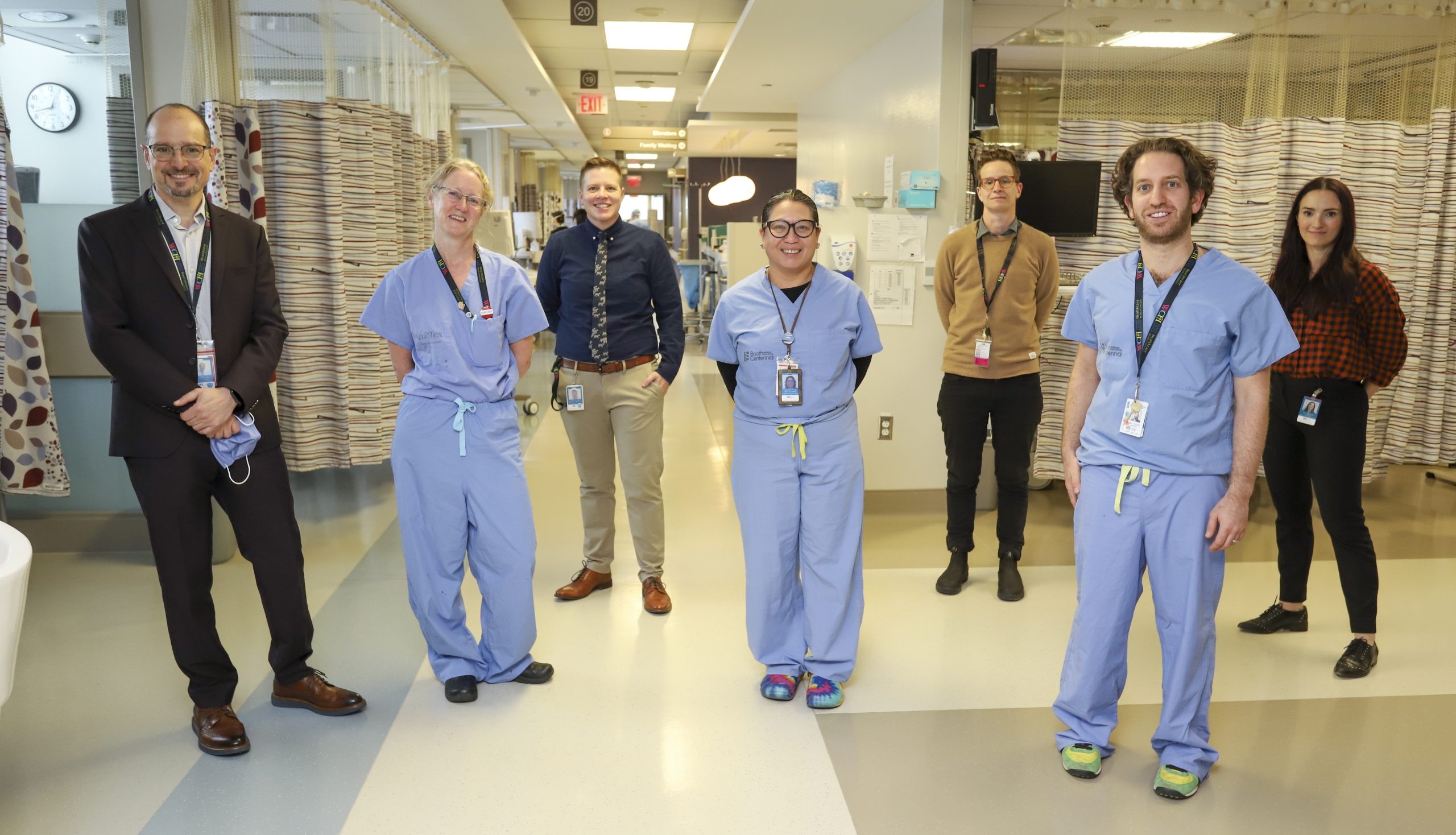The pandemic fast-tracked the development and implementation of virtual care strategies across the health system, enabling more communities to access care when – and where – they need it. Teams across Women’s College Hospital (WCH) are leading the way in developing first-of-its-kind care models with digital tools, resulting in more equitable and responsive healthcare.
No-Touch Abortion Care
The Bay Centre at WCH, which specializes in sexual healthcare, is leading the way in developing one of Canada’s only medical abortion programs that is completely “no-touch,” meaning there is no requirement for bloodwork or ultrasounds. This innovative approach is made possible through a comprehensive screening, counselling and follow-up protocol that ensures it is a safe option for patients.
“Many patients have difficulty accessing reproductive health services in our province due to barriers such as geography, precarious employment or caregiving responsibilities,” says Dr. Sarah Warden, medical lead of the Bay Centre’s medical abortion program. “With this in mind, we have designed a no-touch protocol to help patients access care without having to leave their own communities or even visit a healthcare setting in most circumstances”, said Dr. Warden. “Many of our patients have expressed that they would not have been able to access abortion services otherwise.”
The recent approval of Mifegymiso in Canada has enabled expanded access to medical abortion care. The drug, which can be taken up to ten weeks into pregnancy, is a safe, medical abortion option that can be taken at home. Interested patients complete a detailed questionnaire to determine their eligibility. Their responses are reviewed by Sarah McCarthy, a registered nurse and team lead at the Bay Centre, who connects with patients to determine whether the protocol is safe and appropriate for them.
Following the initial evaluation, a video visit is set up with a physician to review patient records, consent forms, medication instructions and expected symptoms. Afterward, a Mifegymiso prescription is faxed to the patient’s nearest pharmacy, where the patient picks it up to take at home. Throughout the entire process, patients are always connected to their care team through Care Companion, a digital health tool, and by phone or video visit. Programs such as Care Companion, which was designed by Women’s Virtual, the hospital’s virtual care strategy team, now help patients track their medication administration, monitor their post-procedural pain and track their recovery.
“The Care Companion program facilitates communication between patients and their providers,” explains McCarthy. “It is designed to provide more responsive care by serving as a point of contact outside of scheduled appointments.”
The Bay Centre team is also incorporating virtual care into its other services by providing phone and video visits for specialist consults, social work appointments and follow-up visits after contraception procedures.
“The Bay Centre serves everyone from teens feeling afraid and isolated to new mothers concerned about bringing their newborns into the hospital for an in-person appointment,” describes Dr. Warden. “Having the option to access some of their care virtually makes a world of difference for many of them.”
Improving Access to Transition-Related Surgery
As Ontario’s only publicly funded hospital offering gender-affirming surgeries, WCH’s Transition-Related Surgery (TRS) program serves trans, non-binary, and gender diverse people across Ontario. The team, including Dr. Katie Armstrong, plastic and reconstructive surgeon, Dr. Yonah Krakowsky, urologist, Emery Potter, nurse practitioner, and Dr. Marudan Sivagurunathan, post-doctoral fellow, has undertaken research and quality improvement (QI) projects, which aim to help inform healthcare policies, procedures and practices to improve patient safety and access to care. One such area of innovation and QI has been the integration of virtual care and digital solutions into the vaginoplasty surgical pathway.
By incorporating virtual care, the program has improved the quality of care and post-operative outcomes for trans patients, as well as improving wait times for gender-affirming surgical procedures by shortening the length of hospital stay following a vaginoplasty. The patient is then monitored virtually, with medication reminders, educational resources and medical questionnaires delivered through WCH’s myHealthRecord portal.
According to Potter, one the main gaps in this area were inadequate follow-ups with patients following the surgery, which requires stringent after-care. By implementing new virtual tools, patients now have the resources to navigate their post-surgical care with greater ease. As a result, WCH offers high-quality care with very few post-operative complications – by comparison, there’s usually about a 15- to 20-per cent rate of complication following this procedure in most hospitals. This is critical for the safety of trans patients as lower incidences of complications means fewer patients seeking emergency care or encountering a healthcare provider who’s not equipped to manage their health needs.
“Overall, patients feel safer and more comfortable at home,” says Potter. “They feel more cared for – it’s like our team is with them even when, physically, we’re not.”

